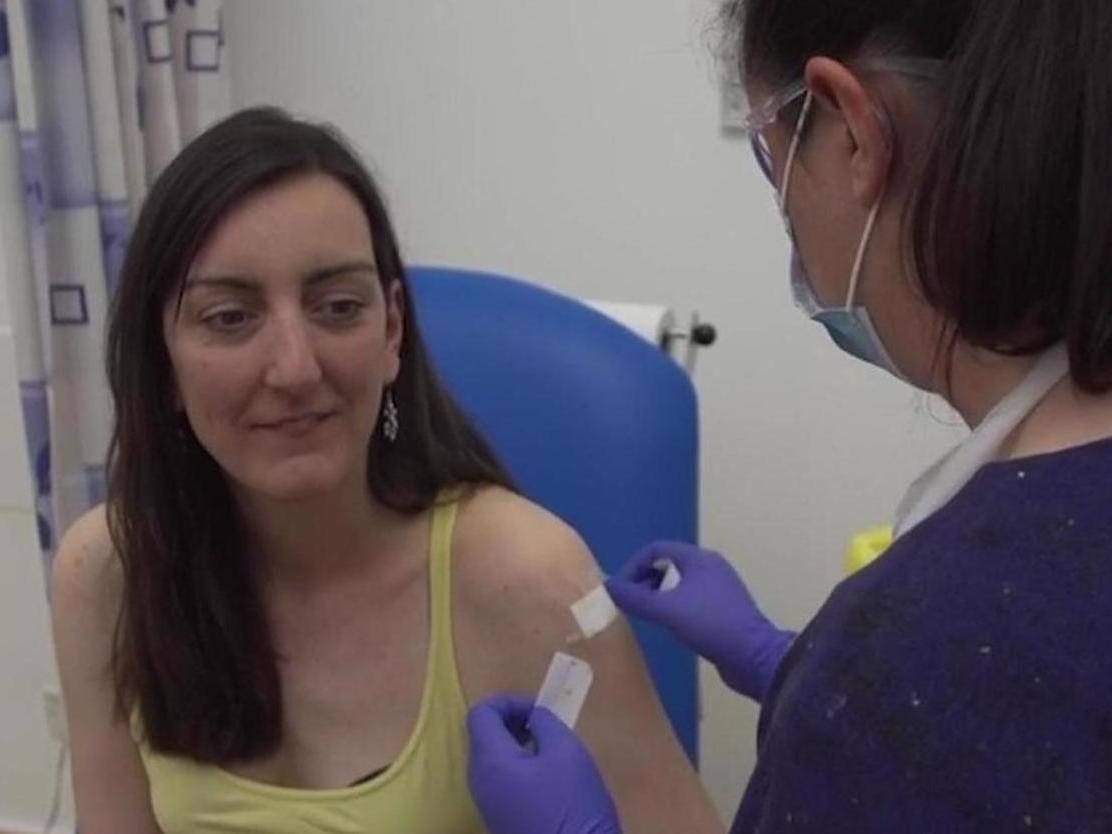Coronavirus: Oxford vaccine trial backed by drug giant and could have early results by mid-June
New partnership with drug giant will allow for global distribution of the vaccination – if it proves effective
Your support helps us to tell the story
From reproductive rights to climate change to Big Tech, The Independent is on the ground when the story is developing. Whether it's investigating the financials of Elon Musk's pro-Trump PAC or producing our latest documentary, 'The A Word', which shines a light on the American women fighting for reproductive rights, we know how important it is to parse out the facts from the messaging.
At such a critical moment in US history, we need reporters on the ground. Your donation allows us to keep sending journalists to speak to both sides of the story.
The Independent is trusted by Americans across the entire political spectrum. And unlike many other quality news outlets, we choose not to lock Americans out of our reporting and analysis with paywalls. We believe quality journalism should be available to everyone, paid for by those who can afford it.
Your support makes all the difference.Experts at the University of Oxford said the first results of coronavirus vaccine trials could by ready as early as mid-June, as the institution announced a new partnership with drug giant AstraZeneca.
The agreement with the British-Swedish pharmaceutical company will allow for rapid large-scale distribution of the vaccination around the world if the candidate proves to be effective, the university said.
Human trials of the vaccine developed by the university’s Jenner Institute began last week, with hundreds of people volunteering to be part of the study which received £20m in government funding.
Sir John Bell, the Regius Professor of Medicine at Oxford University, described the partnership as a “major force in the struggle against pandemics” for the foreseeable future.
Speaking on BBC Radio 4’s Today programme, Sir John said he hoped that some results from a human trial of the vaccine would be available by the middle of June.
He said “several hundred” people have now been given the trial vaccine, and the challenge now is to be able to manufacture at scale once it is approved by the regulators.
Sir John added: “We also want to make sure that the rest of the world will be ready to make this vaccine at scale so that it gets to populations in developing countries, for example, where the need is very great.
“We really need a partner to do that and that partner has a big job in the UK because our manufacturing capacity in the UK for vaccines isn’t where it needs to be, and so we are going to work together with AstraZeneca to improve that considerably.”
It is the first such partnership to be formed since the government launched a vaccination taskforce two weeks ago. Both partners have agreed to operate on a not-for-profit basis for the duration of the pandemic, with only the costs of production and distribution being covered.

AstraZeneca’s chief executive said the company hoped to know by June or July whether the coronavirus vaccine it is working on with the University of Oxford will be effective or not.
“By June, July we will already have a very good idea of the direction of travel in terms of its potential efficacy,” CEO Pascal Soriot told the BBC on Thursday.
“We’ll continue working with the Oxford Vaccine Unit to bring it to patients and to regulatory authorities first of all as soon as possible,” he added.
Health secretary Matt Hancock said it was “hugely welcome news” that Oxford University had come to an agreement with the company to scale up its vaccine programme.
He tweeted: “The Oxford vaccine is one of the most advanced in the world. Bringing together the best British science and the best of British business will give us the best possible shot at a vaccine.
“The science is uncertain, and no vaccine may work, but this deal gives the UK the best chance we can of a breakthrough that could defeat this awful virus.
“I’m sending best wishes for good fortune to all involved – for the sake of the nation and indeed the whole world.”
Thursday’s announcement was welcomed by medical researchers.
Dr Charlie Weller, the Wellcome Trust’s head of vaccines, said: “If we are to get the Covid-19 vaccine the world so desperately needs within a year, we need to start building manufacturing capacity now, so it’s very encouraging to see preparations underway.
“But this effort must be global, not national. As long as Covid-19 is out of control somewhere, it is a threat everywhere.”

Join our commenting forum
Join thought-provoking conversations, follow other Independent readers and see their replies
Comments